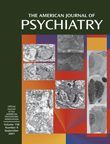Symptom Reduction and Suicide Risk Among Patients Treated With Placebo in Antipsychotic Clinical Trials: An Analysis of the Food and Drug Administration Database
Abstract
OBJECTIVE: The assumption that psychotic patients assigned to placebo in clinical trials of antipsychotics are exposed to substantial morbidity and mortality is not based on data about what actually happens to such patients. This study assesses symptoms and risks of suicide and suicide attempts in psychotic patients assigned to receive placebo in clinical trials. METHOD: The authors used the Food and Drug Administration database to assess suicides, suicide attempts, and psychotic symptom reduction in clinical trials of three new antipsychotics. RESULTS: Among 10,118 participating patients, 26 committed suicide and 51 attempted suicide. Rates of suicide and attempted suicide did not differ significantly between the placebo-treated and the drug-treated groups. Annual rates of suicide and attempted suicide based on patient exposure years were 1.8% and 3.3%, respectively, with placebo; 0.9% and 5.7% with an established antipsychotic; and 0.7% and 5.0% with a new antipsychotic. Symptom reduction was 16.6% with new antipsychotics (N=1,203), 17.3% with established antipsychotics (N=261), and 1.1% with placebo (N=462). CONCLUSIONS: These data may help inform discussions about the use of placebo in antipsychotic clinical trials.



